
NEW COURSE!
Course Faculty - Anjali Gupta
Course Description - This on-demand course provides foundational information on the etiology, evaluation, and treatment of infants with torticollis.

NEW COURSE!
Course Faculty - Michele Parkins, Holly Schifsky, Liesa Ritchie-Persaud, Rona Alexander, Laura Strenk, Meghan Moore Burk, Lori L. Overland, James Northcutt, Kristin Jones, Leslie Paparsenos, Bethanne Mazurczak, Subah Gupta
Course Description - The Program B (Day 2) on-demand series offers 16 contact hours (1.6 CEUs) and features 6 sessions recorded on March 21, 2025 of the Birth to Three Annual Conference.
Meet more of your babies' and toddlers' needs with these multidisciplinary presentations and universal topics!

NEW COURSE!
Course Faculty - Michele Parkins, Holly Schifsky, Liesa Ritchie-Persaud, Rona Alexander, Laura Strenk, Meghan Moore Burk
Course Description - The Program A (Day 1) on-demand course features 7 sessions (18 contact hours - 1.8 CEUs) recorded on March 20, 2025 of the 2nd Annual Birth to Three Annual Conference.
Meet more of your babies' and toddlers' needs with these multidisciplinary presentations and universal topics!

NEW COURSE!
Course Faculty - Michele Parkins, Holly Schifsky, Liesa Ritchie-Persaud, Rona Alexander, Laura Strenk, Meghan Moore Burk, Lori L. Overland, James Northcutt, Kristin Jones, Leslie Paparsenos, Bethanne Mazurczak, Subah Gupta
Course Description - This on-demand course features 13 sessions (34 contact hours - 3.4 CEUs) recorded at the 2nd Annual Birth to Three Conference held on March 20 and 21, 2025.
As birth to three providers, this conference will allow you to address the multifaceted needs of infants and toddlers development more effectively.
We're offering 13 different sessions covering a variety of B-3 topics!

NEW COURSE!
Course Faculty - Leslie Paparsenos, Bethanne Mazurczak
Course Description - Valuable insights into the latest evidence on neuroplasticity, motor learning, and the NDT Practice Model will aid clinicians in organizing, prioritizing, and focusing treatment sessions to ensure functional changes. Learn specific handling strategies that emphasize efficient respiration coordinated with movement & how to provide effective feedback and incorporate varied practice into sessions to enhance functional outcomes.

NEW COURSE!
Course Faculty - James Northcutt
Course Description - This course provides essential training on brachial plexus birth injury (BPBI), covering timely care, advanced evaluation techniques, preventative therapy, orthosis fabrication without a splint pan, surgical options, and post-operative care. Attendees will also learn strategies to empower caregivers in supporting the child’s recovery and long-term management at home.

NEW COURSE!
Course Faculty - Suzanne Davis Bombria
Course Description - Be equipped to examine and analyze gait and execute effective interventions to further the child’s functional level.
Take $30 off this course! Use coupon code DAVIS30 at checkout to receive this savings through July 31.

NEW COURSE!
Course Faculty - Sarah Scow, Tim Dokken, Addie Segal, Greg Santucci, Lindsay Hartsell, Mim Ochsenbein
Course Description - This on-demand course features five (5) sessions (11.5 contact hours - 1.15 CEUs) recorded from Therapies in the School 25th Annual Conference 2024. What's most pressing for your current practice? Behavior and regulation? Mobility and transportation? Learning more about using AI?

NEW COURSE!
Course Faculty - Alexandra Nelson, Denise Swensen, Lori Flynn, Robert Constantine
Course Description - This on-demand course features five (5) sessions (11 contact hours - 1.1 CEUs) recorded from Therapies in the School 25th Annual Conference 2024. Energize your intervention approaches for vision and executive functioning, while boosting your skills with complex communicators, evaluations & goal writing!

NEW COURSE!
Course Faculty - Alexandra Nelson, Denise Swensen, Robert Constantine, Sarah Scow, Tim Dokken, Lori Flynn, Addie Segal, Greg Santucci, Lindsay Hartsell, Mim Ochsenbein
Course Description - This on-demand course features sessions recorded during the 2-Day Therapies in the School 25th Annual Conference 2024. A well-rounded and engaging 22.5 hours of content created just for school-based therapists!

NEW COURSE!
Course Faculty - Susan Cecere
Course Description - Build confidence and competence for navigating challenging IEP meetings.

NEW COURSE!
Course Faculty - Addie Segal
Course Description - Discover the potential for Artificial Intelligence (AI) to enhance your practice. Learn about the development and types of AI while considering possible applications, benefits, and challenges in implementing AI in school-based therapy services. Examine ethical and legal considerations involved in implementing these technologies, such as data privacy, bias, and the overall impact on student well-being. Expand your knowledge to utilize AI effectively in your school-based practice!

NEW COURSE!
Course Faculty - Mia Baugher
Course Description - An essential session for non-SLPs who want to build stronger and more connected communication with their students using a variety of AAC.

NEW COURSE!
Course Faculty - Leslie Paparsenos, Bethanne Mazurczak
Course Description - Effectively implement NDT handling and facilitation to improve feeding, communication, ADLs, gross and fine motor skills for children with cerebral palsy and other neuromuscular disorders during their daily life activities.

NEW COURSE!
Course Faculty - Robyn Ligotti
Course Description - From diagnostic measures through therapeutic interventions, learn how to best support individuals’ safe participation in their lives at home for as long as possible.
Earn 7.0 contact hours upon completion.

NEW COURSE!
Course Faculty - Roberta Gatlin
Course Description - A hands-on course designed to increase the NICU therapist’s knowledge through evidenced-based assessments and interventions.
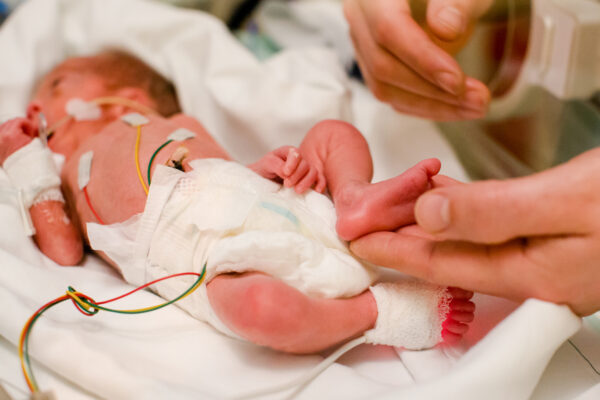
Course Faculty - Anjanette Lee
Course Description - Part 3 of this series focuses on the core competencies of NICU interventions in 3 domains: Micro- and Macro-environments, Family Support and Psychosocial components, and the infant Neurobehavioral System.

Course Faculty - Anjanette Lee
Course Description - Part 4 in this series focuses on the core components needed for independent practice in the NICU within three domains: the Sensory System, Neuromotor & Musculoskeletal Systems, and Oral Feeding and Swallowing.

Course Faculty - Suzanne Davis Bombria, Melissa Smith, Rosie DeFeo, Mary Billings, Patricia Steffen-Sanchez, Elizabeth Powers, Trisha Thorne, Anais Villaluna, Dana Kizer, Roberta Gatlin, Janine Wiskind, Danielle Carey, Nicole Archambault Besson
Course Description - This on-demand course features 12 sessions (31 contact hours - 3.1 CEUs) recorded at the Annual Birth to Three Conference in April 2024.
As birth to three providers, you can stay in your lane AND car-pool with colleagues to best meet the interconnected and complex needs of babies and toddlers.

Course Faculty - Anais Villaluna, Dana Kizer, Trisha Thorne, Roberta Gatlin, Janine Wiskind, Danielle Carey, Nicole Archambault Besson
Course Description - This on-demand course features 6 sessions (16 contact hours - 1.6 CEUs) recorded at the Annual Birth to Three Conference in April 2024.
Course Description - Celebrated ERI Faculty join with talented guest speakers to cover torticollis, reflex integration, NAS, apraxia and healthy airways!

Course Faculty - Suzanne Davis Bombria, Rosie DeFeo, Mary Billings, Patricia Steffen-Sanchez, Elizabeth Powers, Melissa Smith
Course Description - This on-demand course features 6 sessions (15 contact hours - 1.5 CEUs) recorded at the Birth to Three Annual Conference in April 2024.
Course Description - The more the merrier in B3! Meet more of your babies' and toddlers' needs with these multidisciplinary presentations and universal topics!

Course Faculty - Inger Brueckner
Course Description - Updated Course! Inger Brueckner, MS, PT, shares her vast vestibular experience combined with current research to offer updates covering anatomy, function and development of the vestibular system. Plus, how POTS, autonomic dizziness, COVID, cerebral palsy, sensory neural hearing loss and other neurological disorders relate to pediatric vestibular dysfunction.

Course Faculty - Monica Keen, Kimberly Wynarczuk, Jennifer Elinich, Tanya Myers, AnnMarie Stauffer, Lisa Gradziel, Lori Flynn, Jeryl Benson
Course Description - This on-demand course features 6 sessions (14.5 contact hours - 1.45 CEUs) recorded from Therapies in the School 24th Annual Conference 2023. Use motor learning effectively for all types of learners, incorporate the CO-OP approach with executive functioning strategies for students with ADHD, learn how to protect the mental health of your students and advocate for increased participation for students with complex medical needs.

Course Faculty - Arsenio Paez, Kristin Jones, Anais Villaluna, Dana Kizer, Carolyn Dolby, Susan Cecere, Josephine Bardabelias
Course Description - This on-demand course features 5 sessions (14 contact hours - 1.4 CEUs) recorded from Therapies in the School 24th Annual Conference 2023. Champion neurodiversity affirming practices in your school, understand and promote healthy sleep patterns in all ages, bring movement into the classroom to enhance learning, support feeding and swallowing for school day meals, and embrace productive communication for tricky IEP team discussions and decisions.

Course Faculty - Arsenio Paez, Kristin Jones, Anais Villaluna, Carolyn Dolby, Dana Kizer, Susan Cecere, Josephine Bardabelias, Monica Keen, Kimberly Wynarczuk, Jennifer Elinich, Tanya Myers, AnnMarie Stauffer, Lisa Gradziel, Lori Flynn, Jeryl Benson
Course Description - Complete the full 11-session conference for 28.5 Contact Hours (2.85 CEUs). This on-demand course features all sessions recorded both days at Therapies in the School 24th Annual Conference. From motor learning to mental health, executive functioning to feeding and swallowing, sleep patterns to movement breaks, whether starting or continuing the journey of neurodiversity affirming care, practicing effective decision making and handling tricky IEP decisions, you'll walk away well equipped to better support all of your students and their unique needs.

Course Faculty - Susan Cecere
Course Description - In this new, on-demand course, learn assessment processes that foster interprofessional practice and participation-based goals and strategies to positively impact student outcomes.

Course Faculty - Liesa Ritchie-Persaud
Course Description - Develop a systematic approach to the evaluation and treatment of toe walking (including biomechanics, sensory processing, vision/reflexes, evaluation tools and red flags) in order to devise an effective treatment plan that produces successful long-term outcomes.

Course Faculty - Liesa Ritchie-Persaud
Course Description - On-demand Course - Recorded from a recent Live Webinar
Develop a systematic approach to the evaluation and treatment of toe walking (including biomechanics and sensory processing) in order to devise an effective treatment plan that produces successful long-term outcomes.

Course Faculty - Liesa Ritchie-Persaud
Course Description - In this new, on-demand course, clinicians will apply “The Act!” to identify an etiology-based problem list, choose suitable and feasible interventions and develop a plan of care specific to each child (further enhancing information previously learned in Therapeutic Evaluation & Management of Toe Walking (Pediatric Equinus Gait).

Course Faculty - Kareen Robbins
Course Description - Effectively integrating therapeutic interventions into the RTI process will allow support for students and may reduce the need for a referral. Learn approaches to incorporate therapeutic interventions at each tier. These supports may increase a student's success within the general education curriculum and the need for referrals to a specialized instructional service. Incorporating successful strategies for communication and advocacy with leadership, time management, and resources for therapeutic interventions may break down barriers. The result is a win-win for the administration, therapist, teacher, and student.

Course Faculty - Colleen Whiting, Karen Pryor, Susan Cecere, Valerie Clevenger, Amy Lewis, Kareen Robbins
Course Description - This on-demand course features 7 sessions (16.5 contact hours - 1.65 CEUs) recorded from Therapies in the School 23rd Annual Conference. In Program A, you will learn the latest research regarding strategies for addressing dysregulation in both students and staff, updates in trauma informed care including information about sensory differences caused by trauma, how shifting from a workload model supports student outcomes, strategies to embed PT services into the classroom, why evaluating and treating reflexes through neuroplasticity is important for every school-based therapist.

Course Faculty - Cara Koscinski, Kay de Veer, Cynthia Dodds, Christy Hupka, Amy Barr, Elisa Wern
Course Description - This on-demand course features up to 7 sessions (17 contact hours - 1.7 CEUs) recorded at the Therapies in the School 23rd Annual Conference - 2022. Learn how interoception can be used as a building block for executive function skills, to create consistency using an evidenced based approach when evaluating students with autism, how to address vestibular impairments in the classroom, use UDL to help develop accessible lessons for all students, and how to improve outcomes for the medically complex student.
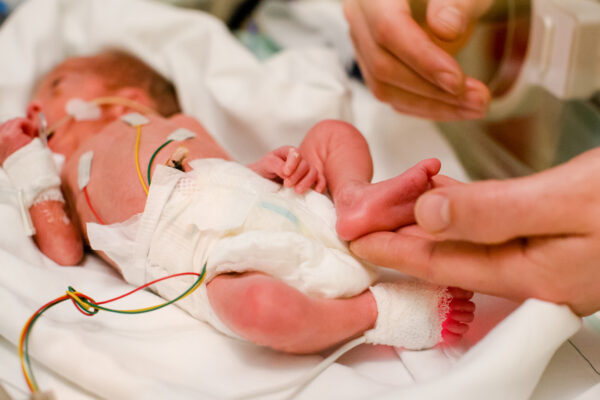
Course Faculty - Anjanette Lee
Course Description - The first of a 4-part series, this course focuses on three Fundamental Knowledge components: the NICU Environment and its impact on premature infant development, the building blocks of neonatal therapy practice and a thorough dive into neonatal body systems.

Course Faculty - Anjanette Lee
Course Description - The second of a 4-part series, this course focuses on four Fundamental Knowledge components: perinatal medical history, NICU equipment, ethical considerations in the NICU, and neonatal therapy assessment tools.

Course Faculty - Colleen Whiting, Karen Pryor, Susan Cecere, Valerie Clevenger, Kareen Robbins, Cara Koscinski, Kay de Veer, Cynthia Dodds, Christy Hupka, Amy Barr, Elisa Wern, Amy Lewis
Course Description - Complete the full 13-session conference for 31 Contact Hours (3.1 CEUs) This on-demand course features all sessions recorded at both days at Therapies in the School 23rd Annual Conference - 2022.
Course Description - Conference highlights include: the latest research regarding strategies for addressing dysregulation, updates in trauma informed care, how interoception can be used as a building block for executive function skills, how to reduce referrals using RTI and create consistency using an evidenced based approach when evaluating students with autism, how to address vestibular impairments in the classroom, why every school based therapist should be addressing reflexes, how to use UDL to help develop accessible lessons for all students, and how to improve outcomes for the medically complex student.
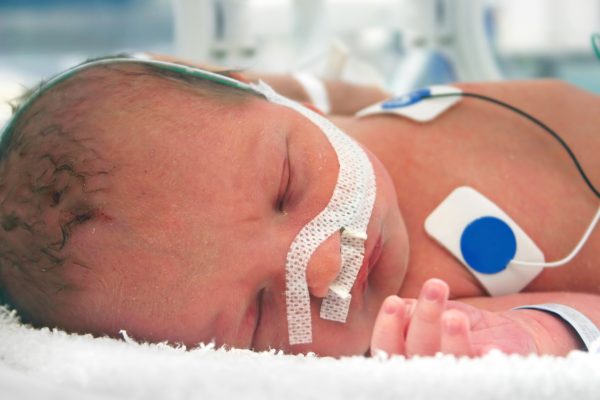
Course Faculty - Anjanette Lee
Course Description - Learn to approach and treat the complex neonate using a neuroprotective framework and advanced clinical thinking skills.

Course Faculty - Amanda Hall
Course Description - Learn advanced evaluation and treatment of the foot and ankle to improve gait and function for adult and pediatric patients with developmental, neurologic, and orthopedic health conditions.
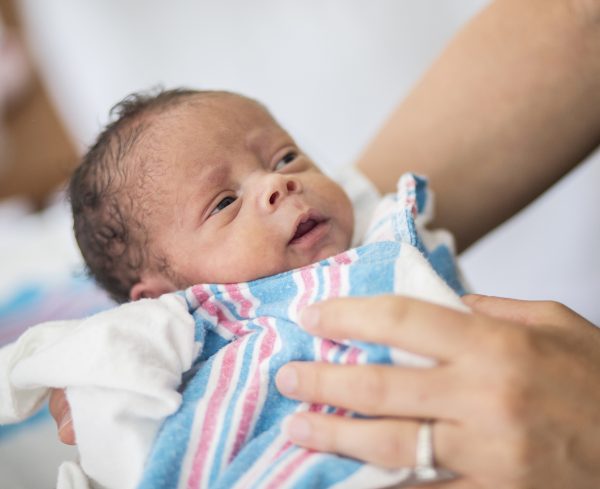
Course Faculty - Holly Schifsky
Course Description - Learn assessment and treatment skills to maximize infant development and feeding skills for the premature or medically fragile infant with cardiopulmonary compromise who is transitioning to outpatient rehabilitation.

Course Faculty - Anais Villaluna, Dana Kizer
Course Description - Through interactive case studies, this brief course will guide your decision-making process of complex pediatric feeding and swallowing cases to BRIDGE the gap between the developmental, neurological, physiological, motor, sensory, and behavioral components.
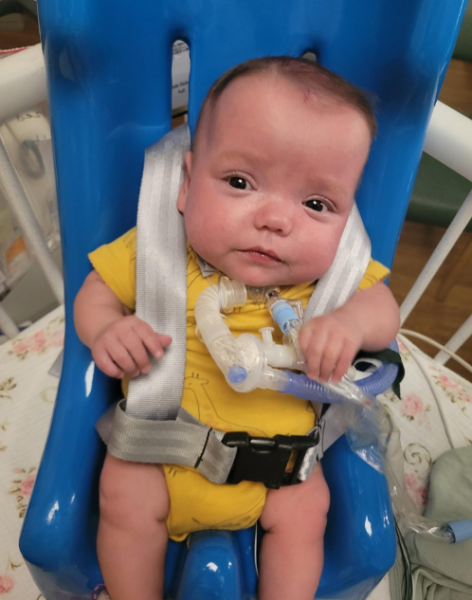
Course Faculty - Holly Schifsky
Course Description - Advance your assessment, treatment, and outcomes for infants requiring a tracheostomy tube and/or ventilator.

Course Faculty - Susan Cecere, Jan Hollenbeck, Joanne Szabo, Barbara Connolly, Tim Richmond, Josephine Bardabelias
Course Description - Complete the full, 7-session conference for 18.5 Contact Hours (1.85 CEUs)
ERI's Therapies in the School 22nd Annual Conference - Online Conference 8 offers recordings of seven (7) different sessions from our virtual Therapies in the School 2021 conference held in November, 2021. Invigorate your school-based practice with new tools, strategies and evidence-based interventions with these 7 engaging, motivating and highly informative courses.
The sessions provide a multitude of thought-provoking interventions and tools to help the children on your caseload and offer more efficient ways to interact with other professionals in the school system.

Course Faculty - Joanne Szabo
Course Description - Cortical visual impairment (CVI), retinopathy of prematurity (ROP) and optic nerve hypoplasia (ONH); learn how these common diagnoses continue to impact a student's educational progress and motor development. Multiple case studies will be discussed to illustrate the characteristics associated with these diagnoses and how the factors associated with the student's visual/vision impairments affect their IEP goals and treatments.
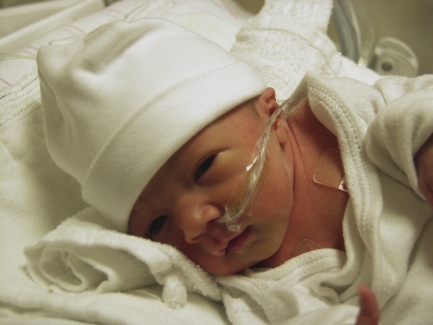
Course Faculty - Holly Schifsky
Course Description - Learn advanced critical reasoning skills and movement analysis skills (via lab time and video presentations) to assess breathing patterns, facilitation techniques to support trunk development, positioning strategies to support chest wall development, and feeding techniques to maximize postural control.

Course Faculty - Richard Clendaniel
Course Description - Learn effective, comprehensive, and evidence-based treatment and evaluation of the number one reason individuals over the age of 70 seek medical attention: Dizziness.

Course Faculty - Janine Wiskind
Course Description - This course provides therapists with a clear understanding of evaluating and treating primitive reflexes. It teaches clinicians to assess the child’s posture and movement patterns It then goes on to teach the reflexes in groups and patterns as they work together fluidly to promote function.

Course Faculty - Michael Lebec
Course Description - Learn to be comfortable and effective providing care in the emergency room by distinguishing sources of pathology, conducting an efficient exam, and administering interventions even when limited to one or few episodes of care.

Course Faculty - Richard Clendaniel
Course Description - The course will focus on the assessment and treatment of patients with vertigo and dysequilibrium from unusual vestibular causes. The course is designed for clinicians (PT & OT) with prior vestibular rehabilitation course work and clinical experience. Material covered will include advanced techniques for treating anterior and horizontal canal BPPV, central causes of dizziness (including concussion), identification and treatment of cervicogenic dizziness, chronic subjective dizziness, migraine and other unusual vestibular disorders. This series is one course with 7 short video sessions. Each videos session is 1.5-2 hours.

Course Faculty - Liesa Ritchie-Persaud
Course Description - Gain practical “sensory-aware”* tools to treat children with both underlying gross motor and sensory dysfunction.

Course Faculty - Cindy Miles
Course Description - Cindy Miles, PT, PhD, PCS, NDT, a leading expert on torticollis and plagiocephaly discusses the increased incidence, etiology, and pathophysiology of this disorder. This dynamic course is chock-full of case studies and interactive at-home lab practice opportunities to provide the knowledge of effective assessment and treatment of children with torticollis. Learn effective strategies including designing home exercise programs, infant positioning, manual techniques, and taping to support your clinical practice. You will explore how this diagnosis impacts the movement system and resulting impairments in gross, fine and speech motor skills. Evidence-based treatment strategies that can be integrated into routines and functional play will be provided as well as recommendations for follow-up.
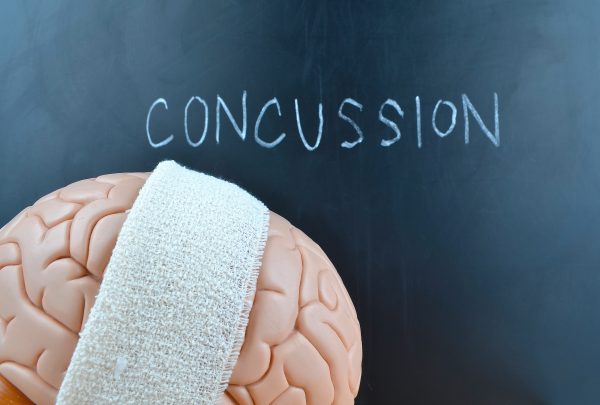
Course Faculty - Christina Finn
Course Description - NEWLY UPDATED. Learn the latest relevant assessment and treatment strategies for patients across the lifespan who experience prolonged visual, vestibular, and sensory complaints as a result of a concussion.
